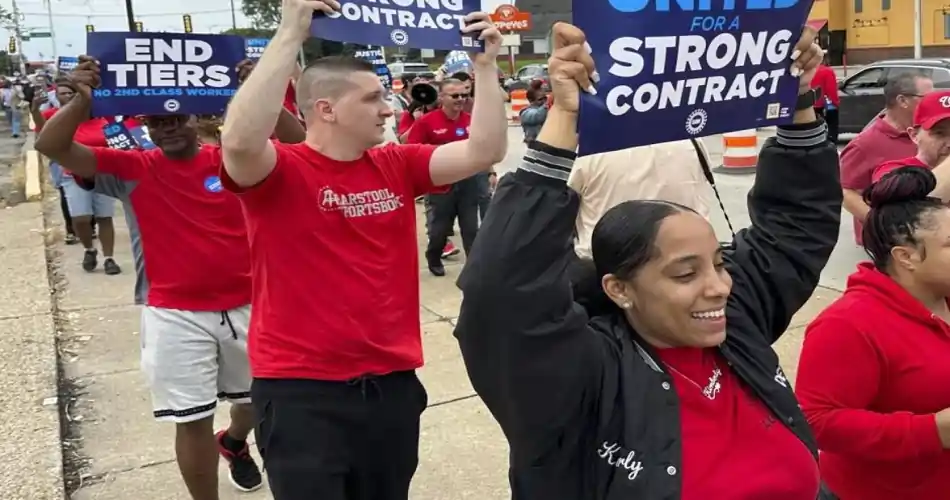Union, automakers hold negotiations for new labor contract against the clock
The United Auto Workers (UAW) union and Detroit’s three major automakers are facing a looming deadline for negotiating a new labor contract, raising the likelihood of strikes in the industry.
UAW President Shawn Fain has prepared members for the possibility of a strike if their demands, which include improved wages and benefits, are not met.
A strike could have a significant economic impact on several Midwestern states and affect the profits of General Motors, Ford and Stellantis, especially after the 40-day strike by GM workers in 2019.
The union is not ruling out the possibility of a joint strike against all three manufacturers, something unprecedented, which could affect the U.S. economy.
The negotiations are taking place at a time when the auto industry is investing heavily in electric vehicles, which could change labor dynamics.
President Joe Biden has shown support for the UAW, but the relationship is strained due to concerns about jobs related to federally subsidized electric vehicles.
UAW demands include wage increases, protection from plant closures and better benefits, and Fain has proposed a wage increase of up to 40 percent.
The companies argue that some demands could affect their competitiveness.
Tensions are high in the talks, and although a strike fund has been built up, uncertainty lingers around a potential work stoppage in the U.S. auto industry.
Potential economic and political impact: A prolonged strike in the auto sector, especially if it involves all three manufacturers, could have significant economic repercussions, affecting suppliers and workers across the country. In addition, the results of these negotiations could also influence the relationship between the UAW and the Biden administration, as the union seeks a contract that supports the middle class, but has expressed concerns about electric vehicle jobs.
Union strategy: UAW President Shawn Fain has taken a more combative approach to these negotiations, reflecting a shift in union strategy. His willingness to consider a joint strike against the three manufacturers indicates a tough stance and could be an attempt to pressure the companies to meet the union’s demands.
Impact of investment in electric vehicles: The transition to electric vehicles is at the center of these negotiations. As the auto industry invests in electric vehicles, the new labor contract will determine how workers and companies will adapt to this technological evolution, which tends to be less labor intensive than internal combustion vehicles.
Future of the Belvidere, Illinois plant: The idled Belvidere, Illinois plant is a critical point in the negotiations. Its reopening is critical to the UAW and represents a major challenge for union President Shawn Fain, who promised members he would fight for its reactivation. The decision on this plant could influence the direction of the talks.

